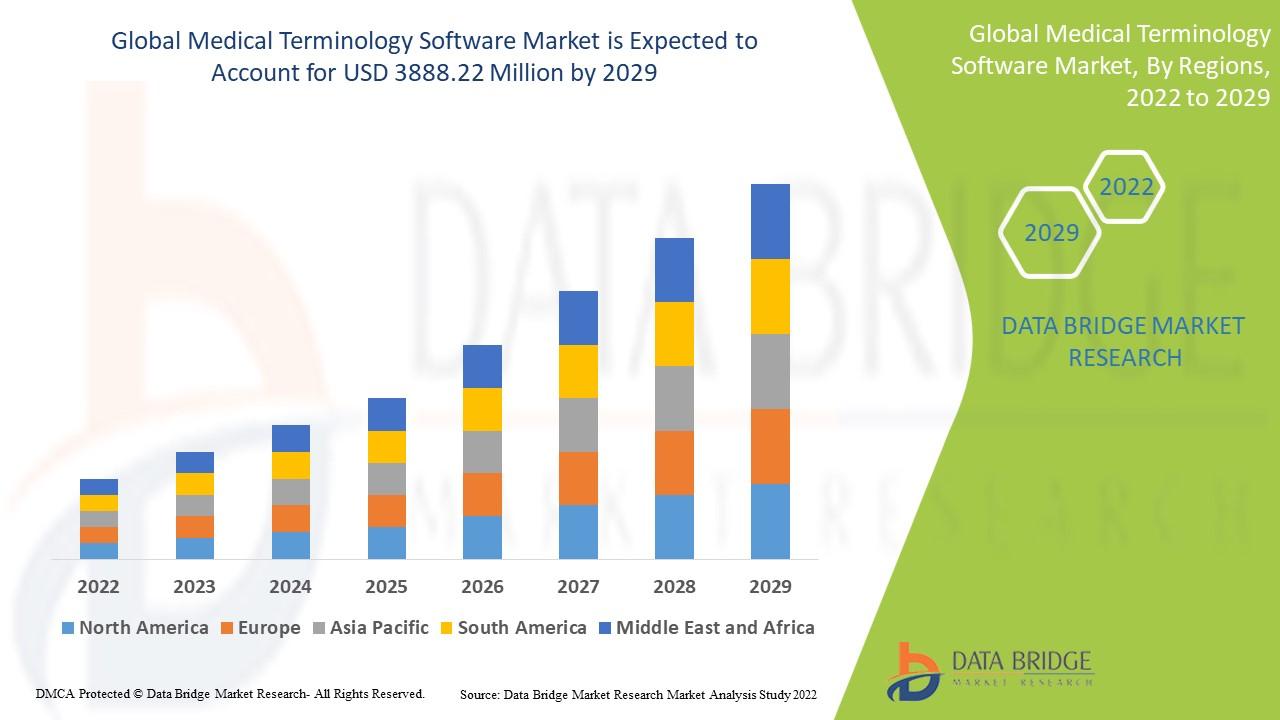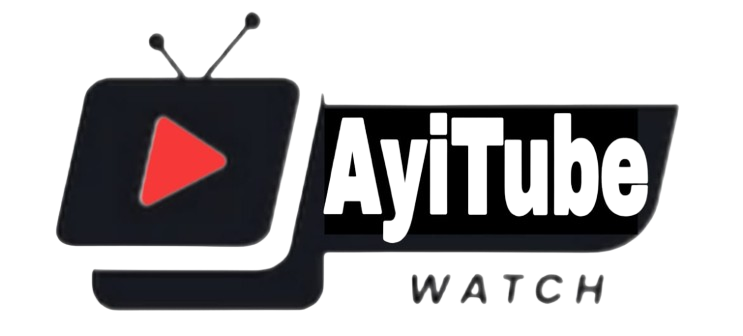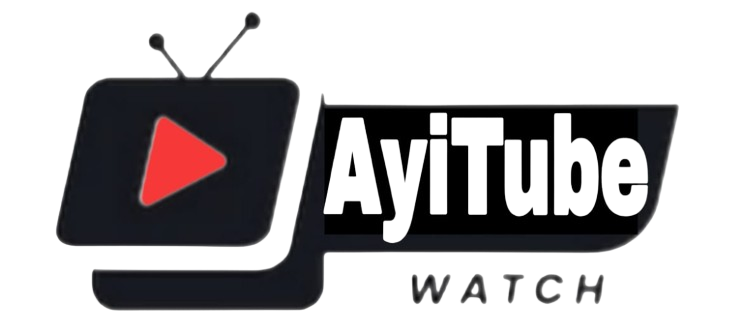Medical Terminology Software Market Size, Status and Outlook 2029

"Market Trends Shaping Executive Summary Medical Terminology Software Market Size and Share
CAGR Value
The medical terminology software market is estimated to grow at a CAGR of roughly 18.52 % during the forecast period of 2022-2029.
The Medical Terminology Software Market report puts light on the change in the market which is taking place due to the moves of key players and brands such as product launches, joint ventures, mergers and acquisitions that in turn modifies the view of the global face of Medical Terminology Software Market industry. This market report takes into account myriad of aspects of the market analysis which today’s businesses call for. To make the report outstanding, most up-to-date and advanced tools and techniques are used so that client achieves maximum benefits. The Medical Terminology Software Market report also includes the market drivers and market restraints that are derived from SWOT analysis.
This Medical Terminology Software Market report helps businesses thrive in the market by providing them with a lot of insights about the market and the Medical Terminology Software Market industry. The key factors here include industry outlook with respect to critical success factors (CSFs), industry dynamics that mainly covers drivers and restraints, market segmentation & value chain analysis, key opportunities, application and technology outlook, regional or geographical insight, country-level analysis, key company profiles, competitive landscape, and company market share analysis. Thus, Medical Terminology Software Market research report is very important in many ways to grow your business and to be successful.
Unlock detailed insights into the growth path of the Medical Terminology Software Market. Download full report here:
https://www.databridgemarketresearch.com/reports/global-medical-terminology-software-market
Medical Terminology Software Industry Performance Overview
**Segments**
- On the basis of type, the global medical terminology software market can be segmented into clinical terminology software, administrative terminology software, and others. Clinical terminology software is expected to hold a significant market share due to its crucial role in improving clinical documentation and patient care processes. Administrative terminology software is also anticipated to witness growth as healthcare providers focus on streamlining administrative tasks and enhancing operational efficiency.
- By application, the market can be divided into healthcare providers, healthcare payers, and others. Healthcare providers are likely to dominate the market segment as they increasingly adopt medical terminology software to enhance patient care delivery and operational workflows. Healthcare payers segment is also expected to grow steadily as payers aim to improve claims processing and regulatory compliance through advanced terminology solutions.
**Market Players**
- Prominent players in the global medical terminology software market include Intelligent Medical Objects, Clinical Architecture, Apelon, Clinical Computer Systems, Wolters Kluwer, Bitac, BT Group, Edifecs, Health Language, 3M, and HiveWorx. These companies are actively involved in product development, partnerships, and acquisitions to strengthen their market presence and cater to the evolving needs of healthcare organizations worldwide.
The global medical terminology software market is witnessing rapid growth, driven by the increasing focus on enhancing clinical documentation, improving patient outcomes, and streamlining administrative processes in healthcare settings. The adoption of advanced technologies, such as artificial intelligence and natural language processing, is further fueling market growth by enabling more accurate and efficient capture, storage, and retrieval of medical data. As healthcare providers and payers strive to comply with regulatory requirements and enhance interoperability, the demand for medical terminology software is expected to continue rising in the coming years.
The global medical terminology software market is poised for significant growth as healthcare organizations increasingly recognize the importance of leveraging advanced technology solutions to improve operational efficiency, enhance patient care, and ensure compliance with regulatory standards. One key trend shaping the market dynamics is the rapid adoption of cloud-based medical terminology software solutions, enabling healthcare providers and payers to access real-time data and streamline information exchange across various platforms. This shift towards cloud-based solutions is driven by the need for scalability, flexibility, and cost-effectiveness in managing vast amounts of medical data securely.
Moreover, the integration of artificial intelligence (AI) and machine learning algorithms in medical terminology software is revolutionizing the way healthcare professionals capture, analyze, and utilize clinical data. AI-powered tools offer advanced functionalities such as predictive analytics, clinical decision support, and automated coding, enabling faster and more accurate diagnosis and treatment planning. As a result, healthcare providers can optimize resource utilization, reduce errors, and improve overall patient outcomes.
Another significant aspect influencing the market landscape is the rise of interoperability initiatives aimed at facilitating seamless data exchange among healthcare systems, devices, and applications. Medical terminology software plays a crucial role in standardizing terminology and coding practices, thereby enhancing data interoperability and promoting information exchange across disparate healthcare IT systems. This interoperability is vital for achieving a holistic view of patient health records, enabling care coordination, and supporting population health management initiatives.
Furthermore, the market is witnessing a surge in strategic collaborations, partnerships, and mergers among key players to expand their product portfolios, enhance technological capabilities, and target new customer segments. Companies are investing in research and development efforts to innovate advanced features, such as natural language processing, voice recognition, and semantic interoperability, to meet the evolving needs of healthcare organizations. These innovations are expected to drive the adoption of medical terminology software across different healthcare settings, including hospitals, clinics, ambulatory care centers, and diagnostic laboratories.
In conclusion, the global medical terminology software market is experiencing transformative growth driven by technological advancements, increasing digitization of healthcare data, and a growing emphasis on interoperability and data standardization. By leveraging innovative solutions powered by AI, cloud computing, and collaborative partnerships, market players can address the complex challenges faced by healthcare providers and payers, ultimately improving patient outcomes, operational efficiency, and data-driven decision-making in the healthcare industry.The global medical terminology software market is an ever-evolving landscape, driven by a multitude of factors that are shaping the industry in significant ways. One crucial trend impacting the market is the increasing integration of advanced technologies like artificial intelligence (AI) and machine learning into medical terminology software solutions. These technologies are revolutionizing the healthcare sector by offering enhanced functionalities such as predictive analytics, clinical decision support, and automated coding. The adoption of AI-powered tools is enabling healthcare professionals to streamline workflows, improve diagnostic accuracy, optimize resource allocation, and ultimately enhance patient outcomes. As the healthcare industry continues to embrace digital transformation, the demand for sophisticated medical terminology software solutions is expected to surge.
Another key driving force behind the market growth is the emphasis on interoperability and data standardization within healthcare systems. Medical terminology software plays a crucial role in standardizing coding practices and terminology, thereby facilitating seamless data exchange among different healthcare IT systems, devices, and applications. This interoperability is essential for enhancing care coordination, supporting population health management initiatives, and providing a comprehensive view of patient health records. As healthcare organizations strive to achieve greater data sharing and connectivity, the importance of robust medical terminology software solutions will only continue to grow.
Moreover, the market is witnessing a wave of strategic collaborations, partnerships, and mergers among key players in a bid to strengthen their market position, expand product offerings, and tap into new customer segments. Companies are investing in research and development to innovate cutting-edge features such as natural language processing, voice recognition, and semantic interoperability, to address the evolving needs of healthcare providers and payers. By fostering a culture of innovation and collaboration, market players are poised to drive the adoption of medical terminology software across various healthcare settings, including hospitals, clinics, and diagnostic laboratories.
In conclusion, the global medical terminology software market is on a trajectory of substantial growth, propelled by technological advancements, increasing digitization of healthcare data, and a growing focus on interoperability and data standardization. By embracing advanced technologies, fostering industry partnerships, and prioritizing innovation, market players can meet the evolving demands of the healthcare ecosystem, ultimately delivering improved patient care, operational efficiency, and data-driven decision-making capabilities across the healthcare industry.
Check out detailed stats on company market coverage
https://www.databridgemarketresearch.com/reports/global-medical-terminology-software-market/companies
In-Depth Market Research Questions for Medical Terminology Software Market Studies
- What revenue figures define the current Medical Terminology Software Market?
- What are the near-term and long-term growth rates expected in Medical Terminology Software Market?
- What are the dominant segments in the Medical Terminology Software Market overview?
- Which companies are covered in the competitor analysis for Medical Terminology Software Market?
- What countries are considered major contributors for Medical Terminology Software Market?
- Who are the high-growth players in the Medical Terminology Software Market?
Browse More Reports:
Global Oxygen Scavenger Masterbatch Market
Global Oxytocic Pharmaceutical Market
Global Packaged Muesli Market
Global Packaging Bioadhesives Market
Global Packaging Divider Market
Global Polyaryletherketone (PAEK) Market
Global Paint Packaging Market
Global Pancytopenia Market
Global Paraffin Wax-Based Packaging Market
Global Paralleling Switchgear Market
Global Paroxysmal Nocturnal Hemoglobinuria Drug Market
Global Passive Matrix Organic Light Emitting Diode (PMOLED) Market
Global Patient Temperature Monitoring Market
Global PC Peripheral Storage Market
Global Polymerase Chain Reaction (PCR) Devices Market
North America Chromatography Food Testing Market
About Data Bridge Market Research:
An absolute way to forecast what the future holds is to comprehend the trend today!
Data Bridge Market Research set forth itself as an unconventional and neoteric market research and consulting firm with an unparalleled level of resilience and integrated approaches. We are determined to unearth the best market opportunities and foster efficient information for your business to thrive in the market. Data Bridge endeavors to provide appropriate solutions to the complex business challenges and initiates an effortless decision-making process. Data Bridge is an aftermath of sheer wisdom and experience which was formulated and framed in the year 2015 in Pune.
Contact Us:
Data Bridge Market Research
US: +1 614 591 3140
UK: +44 845 154 9652
APAC : +653 1251 975
Email:- corporatesales@databridgemarketresearch.com
"
- Art
- Causes
- Crafts
- Dance
- Drinks
- Film
- Fitness
- Food
- Games
- Gardening
- Health
- Home
- Literature
- Music
- Networking
- Other
- Party
- Religion
- Shopping
- Sports
- Theater
- Wellness


